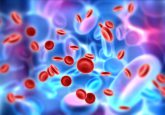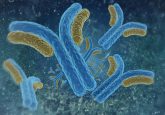Novel biomarker potentially identified for cancer prognosis

Researchers from the Lawrence Berkeley National Laboratory (CA, USA) have identified 14 genes associated with the regulation of genome integrity that were regularly overexpressed in an array of cancers. Utilizing this test may assist clinicians to predict patient response to treatments in the initial stages of tumor development, which could reduce the possibility of patients receiving ineffective therapy.
Chromosomal instability is an indicator of cancerous tissue that will contribute towards tumor heterogeneity. Abnormal functioning of centromeres and kinetochores can prompt chromosomal instability via chromosome missegregation, which may develop into aneuploidy, rearrangements and micronucleus formation. Therefore the team developed a centromere and kinetochore gene expression score (CES) system that has the ability to quantify gene misexpression in cancers.
The study, published recently in Nature Communications, identified genes involved in regulating the function of centromeres. To achieve this, the team extensively analyzed public datasets containing thousands of clinical tumor samples from a variety of cancers and screened for the presence of 31 genes associated with the regulation of centromere and kinetochore function. They identified 14 genes that were consistently overexpressed within the samples.
Utilizing the CES a higher gene expression value typically correlated with increased levels of genomic instability that would indicate poorer prognosis. Additionally, high levels would also sensitize cancer cells to additional genotoxicity. However the team also identified that high expression can be linked to more effective therapy, hypothesizing that there is a threshold of genome instability and at high levels cancerous cells are more susceptible to DNA damage.
“These findings are very exciting,” commented study co-author Anshu Jain (Ashland Bellefonte Cancer Center, Russell, KY, USA). “The biomarker score provides predictive and prognostic information separate from and independent of clinical and pathologic tumor characteristics that oncologists have available today and which often provide only limited clinical value.”
Further research is required in order to translate these results into clinical advice and practice, such as identification of the threshold of genome instability, however it demonstrates promise in assisting clinicians and patients to make informed decisions in therapy options.
“Future steps will include investigating the CES in prospective clinical studies for validation in carefully selected patient cohorts,” concluded Jain. “By establishing the clinical significance of the CES, oncologists will have greater confidence in guiding cancer patients toward treatments with the greatest benefit.”
Sources: Zhang W, Mao J, Zhu W et al. Centromere and kinetochore gene misexpression predicts cancer patient survival and response to radiotherapy and chemotherapy. Nat. Comm. doi: 10.1038/ncomms12619 (2016) (Epub ahead of print);
http://newscenter.lbl.gov/2016/08/31/biomarker-for-cancer-patient-prognosis/






